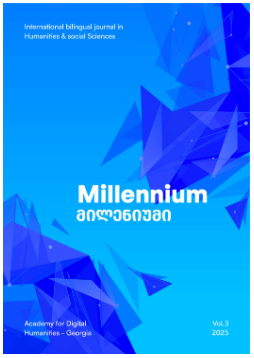ენობრივი ტაბუს თარგმანის ანალიზი სატელევიზიო შოუს „ყველა ჩვენგანი მკვდარია“ გერმანულ სუბტიტრებში
Main Article Content
ანოტაცია
In this day and age, language learning aided by watching media such as movies and series in the target language is becoming increasingly popular. However, languages are accompanied by cultural differences in expressions and usage. This sparks the question how culture-bound terms such as curses and insults or, more broadly, taboo language are dealt with in translation, especially regarding subtitles, to adequately convey their meaning. The objective of this paper is to examine the use of taboo language and its translation from a Korean source text to German subtitles in the Korean Netflix TV-show All Of Us Are Dead. The show is well known for its use of Korean slang and quickly gained popularity among language learners, making it an interesting subject of research to assess the utilization of translation strategies, particularly with regards to taboo expressions in Korean and how they are reflected in the German language. To come to a satisfying conclusion, qualitative as well as quantitative methods are applied in regards to aspects such as how often each translation strategy is used and how the translator dealt with translation on a pragmatic level.
